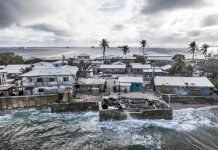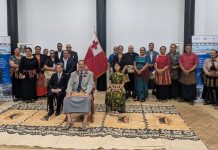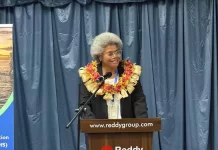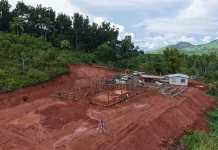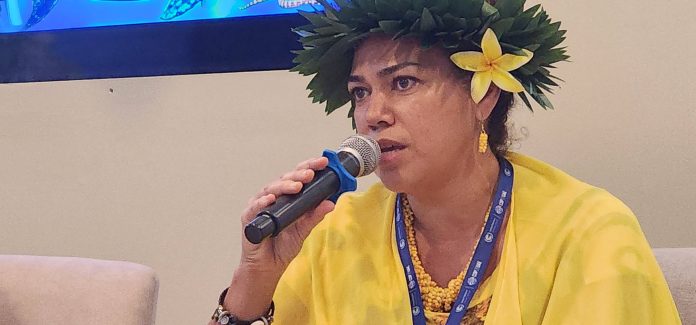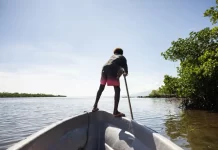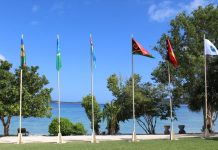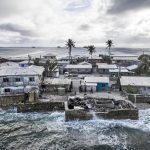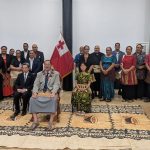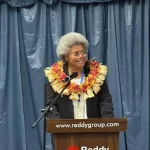By Pita Ligaiula at COP28 in Dubai, UAE
The Director of the Climate Change and Sustainability Programme at SPC, Coral Pasisi Monday, discussed the financial difficulties confronting Pacific countries and Niue’s creative approaches to secure investments for sustainable results.
“Our countries, on the front line, have access to less than 0.2 percent of that promise made 13 years ago. And yet, our countries are on the front line, and they have contributed least to that problem and that pollution. So that is really not a fair deal at all,” she said in a media briefing in Dubai.
Pasisi drew attention to the substantial contributions of Pacific nations to global environmental stability.
“Our countries are committing some of the biggest spaces on Earth, in the ocean, to protection, and they are sustainably managing their biggest share resource, the fish stocks. So as a contribution that our countries are making to the stability of the global environment, that is disproportionately huge. And yet, we are disproportionately very badly impacted by climate change,” she said.
Pasisi also expressed frustration with the slow pace of traditional climate finance mechanisms.
“It takes three years for a project proposal to get approved, that takes another three years before you actually see impacts of implementation. So that’s six years between a community or country identifying a need, and then getting some actual impact on that need. And those timelines just don’t equate to the problem.”
Drawing attention to the lack of a clear definition of climate finance, Pasisi emphasised Pacific countries’ firm position that it should be new and additional to Official Development Assistance (ODA).
“That takes money away from what governments are normally spending on education and healthcare, etc.,” she explained.
Pasisi also spoke on Niue’s innovative approach.
“What Niue has essentially done is we’re sick of waiting, sick of waiting and trying to manipulate these global funds to address our needs.”
In collaboration with a non-profit organisation, Niue committed 40 percent of its Exclusive Economic Zone (EEZ) to a no-take zone, creating an “ocean conservation commitment” as a funding mechanism.
Individuals can sponsor a square kilometer, contributing to the preservation of Niue Moana Mahu for 20 years. The proceeds from these sponsorships fund community resilience and sustainable blue economy initiatives.
Looking ahead, Pasisi emphasised the need for a new quantified goal.
“It’s really important that over the next year, we engage in that process to try and ensure that the ambition to reach that kind of investment level is actually done.”
She stressed that the costs for transitioning to a low-carbon future are affordable in comparison to the global GDP.
“Our adaptation bills might actually be higher. And certainly, our loss and damage bills will be very high if everyone else doesn’t do their parts and move towards this 1.5-degree benchmark,” she said.
SOURCE: PACNEWS


